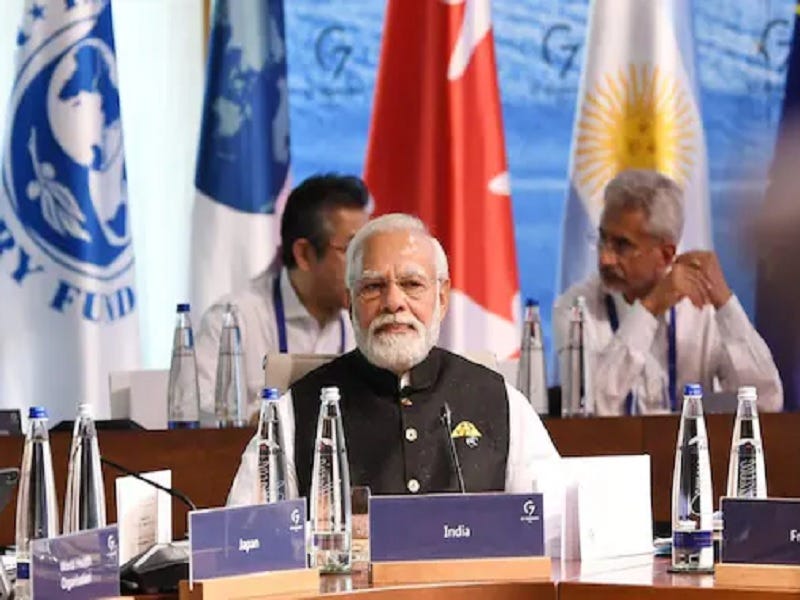India Was The Voice Of Moderation & Reason At The G7
India has a strict policy of only discussing relevant matters with each bloc, which is why it refuses to politicize integrational ones like BRICS, the G7, or the Quad by supporting anti-American rhetoric in the first-mentioned and anti-Russian rhetoric in the last two.
Indian Prime Minister Modi attended this year’s G7 Summit in Germany, during which time he was once again the voice of moderation and reason in a Western-dominated bloc. Unlike his British counterpart who paraphrased 1984’s infamous “war is peace” slogan over the weekend to argue for ruling out peace talks and instead indefinitely perpetuating US-led NATO’s proxy war on Russia through Ukraine, the Indian Foreign Secretary said that his leader “made India`s position clear including an immediate end to hostilities; dialogue & diplomacy to resolve the situation.” This pragmatic stance mirrors that which he’s articulated while participating in the recent Quad Summit, during which time the Indian leader once again refused to capitulate to Western pressure to publicly condemn Russia.
There are several trends at play that deserve further analysis. First, the US-led West continues to pressure India into condemning Russia. Second, India has stood its ground and refuses to unilaterally concede on an issue of objective national interest such his country’s special and privileged strategic partnership with Russia. Third, this position has injected some much-needed moderation and reason into Western-dominated blocs. Fourth, the contrast between their stances and India’s draws attention to the systemic level of “The Great Bifurcation” between the Golden Billion and the Global South. And finally, these same members of the Golden Billion still pragmatically cooperate with India in spite of their irreconcilable differences over this sensitive issue because of its irreplaceable balancing role.
India’s balancing act between BRICS and the G7 has enabled this South Asian Great Power to function as a bridge between both blocs, which no other country is capable of doing at the level that this one is. With almost as many people as China and the most comprehensively promising Global South economy behind the People’s Republic, India is integral to the success of any multilateral economic initiative. Be that as it is, India has a strict policy of only discussing relevant matters with each bloc, which is why it refuses to politicize integrational ones like BRICS, the G7, or the Quad by supporting anti-American rhetoric in the first-mentioned and anti-Russian rhetoric in the last two. Even though the G7 published a joint statement condemning Russia, India wasn’t part of the drafting team because it was a guest there.
Everything that India’s doing is driven by its grand strategic goal of becoming the third pole of influence in the present bi-multipolar intermediary phase of the global systemic transition to multipolarity. Indian thinker Sanjaya Baru believes that the American and Chinese superpowers exert the greatest influence over the international system, below which are Great Powers like his country and Russia, with comparatively medium- and smaller-sized countries at the bottom of this hierarchy. In the context of this analysis, the US clearly leads the G7 while China is BRICS’ unofficial leader. India’s goal is to balance between both in order to reap mutual benefits from each of them so as to facilitate its rise as the third pole of influence in this system.
To that end, it’s teaming up with Russia and Iran in Eurasia while concentrating on doing the same with ASEAN in the Indo-Pacific through a policy that can be described as dual-tripolarity, or the simultaneous creation of tripolarity in Eurasia’s two primary regions. The G7 and BRICS are the Golden Billion and Global South’s top geo-economic platforms respectively, hence why India participates in both but also does its best to moderate their political positions towards their opponents. This imbues that civilization-state with a unique role in the global systemic transition, one which is very difficult to manage but which it’s thus far pulling off impressively well. Judging by its successful back-to-back balancing acts in BRICS and the G7, it made some progress in advancing its grand strategic goal of tripolarity.




